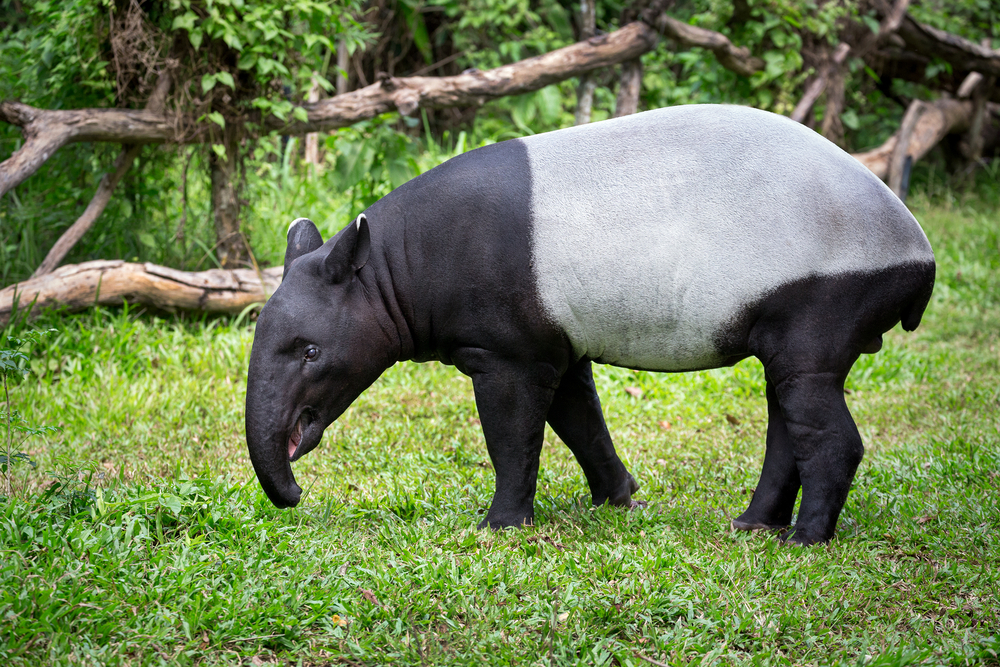Columbus Zoo Honors Tapir Conservation

On April 28, the Columbus Zoo and Aquarium will honor Dr. Patrícia Medici, the founder of the Lowland Tapir Conservation Initiative (LTCI; IPÊ – Instituto de Pesquisas Ecológicas, Institute for Ecological Research) in Brazil, with its biennial Commitment to Conservation Award. The honor includes a $50,000 grant, made possible through funds raised at the Zoo’s annual Wine for Wildlife event.
Medici, who also serves as Chair of the International Union for Conservation of Nature (IUCN)/Species Survival Commission (SSC) Tapir Specialist Group (TSG), has helped conserve and raise awareness for “the coolest animal you know nothing about,” as she referred to the tapir in her popular TED talk. Lowland tapirs, native to South America, are elusive animals, and little was known about them when Medici began her work in 1996. Since establishing the LTCI, Medici and her team have helped discover the vital role tapirs play in the ecosystems they inhabit. Her research also suggests that this keystone species is at risk for extinction in several parts of its geographic distribution.
Medici’s work is one of more than 70 projects in nearly 40 countries that are supported by funds raised through the Columbus Zoo. Since 2001, the Zoo has contributed $109,549 to Medici’s work. She was selected to receive the Commitment to Conservation Award by exemplifying how collaborations between field researchers and zoos can help save wildlife.
“Dr. Medici, from the beginning of her 17-year partnership with the Columbus Zoo, recognized the importance of forming long-term relationships and providing consistent communication with zoos,” said Lewis Greene, Senior Vice President Animal Care and Conservation. “Instead of viewing zoos as merely a revenue source, she has demonstrated how much more can be accomplished when field researchers and zoos work together as partners for effective conservation.”
Medici has worked on ground-breaking research that has been critically important to the survival of tapirs. The LTCI’s work involves tapir research in the four Brazilian biomes where tapirs are found (Atlantic Forest, 1996-2007; Pantanal, 2008-ongoing; Cerrado, 2015-ongoing; Amazon, selecting study area), conservation programs, education and training opportunities, scientific tourism, and outreach campaigns to apply the findings. Through the LTCI, tapirs have become ambassadors for habitat protection, environmental education, and scientific tourism initiatives.
And Medici’s impact goes beyond her work with tapirs. The IUCN’s SSC has encouraged other Specialist Groups to model themselves after the Tapir Specialist Group.
“I have seen Dr. Medici’s passion and desire to make a difference,” said Tom Stalf, president and CEO of the Columbus Zoo. “While her tireless passion to protect tapirs has made a difference to this species, I believe her greatest legacy will be related to the mentorship she provides to the rising biologists she inspires every year.”
She has also raised awareness among the general public, through mediums such as the TED talks. In this talk, she points out that tapirs are living fossils (having survived several waves of extinction), are pregnant for more than a year (making conservation efforts particularly difficult), and are called “gardeners of the forest” (because they eat fruit and travel long distances before “dispersing” the seeds). As adults, tapirs look like a cross between a wild boar and an anteater; as babies, their striped bodies resemble watermelons.
Medici will be the third recipient of the Zoo’s Commitment to Conservation Award. The Columbus Zoo established this award in 2011 to publicly recognize and reward the unsung heroes of global wildlife conservation and to honor the lifetime achievements and dedication of our field conservation partners. The previous recipients are: Claudine Andre, Lola Ya Bonobo Founder, who established a sanctuary for bonobos in Kinshasa Province, Democratic Republic of Congo; and Marc Ancrenaz, co-founder of the Kinabatangan Orangutan Conservation Program (KOCP) based in Borneo, who works to raise awareness about the orangutan and the importance of protecting the species’ habitat.
BROUGHT TO YOU BY


